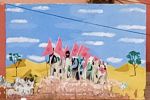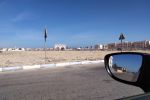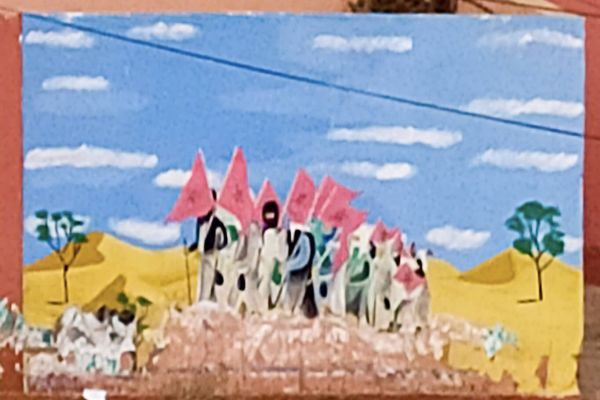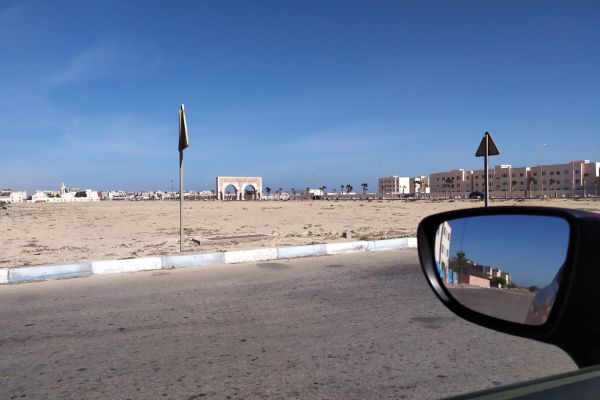When studying the right to freedom of expression in Western Sahara we found a lot of information which we would like to share with the United Nations Human Rights Council within their Universal Periodic Review (UPR) process. Morocco is up for review in May 2022. Below I will firstly, explain what the UPR process is, secondly, elaborate on why Moroccan law does not protect the right to freedom of expression completely and thirdly, talk about the practice by Moroccan authorities.
What is the UPR?
Every five years each member of the United Nations (UN) has to report to the UN Human Rights Council, which is the UN body responsible for the promotion and protection of human rights. States have to report on how they are doing in terms of human rights. Have they protected the rights of their people well in the past five years? What went well, what can be done better, and how are they planning to improve? This process is called the Universal Periodic Review (UPR) process. To check if the information provided by these states is complete and correct, the Human Rights Council asks civil society organizations to produce “shadow reports”, which are reports providing information on the human rights situation on the ground. So that is exactly what we did, together with our partner organizations.
Since this report is about the State (in this case Morocco), we can only report what Morocco does or does not do to protect the right to freedom of expression. So, what according to our report are the main issues?
Why Moroccan law does not protect the right to freedom of expression completely
Under Moroccan law, everyone has a right to freely express themselves. Morocco has also consented to comply with major human rights treaties which safeguard the right to freedom of expression. This means that Morocco is under an obligation to protect the right to freedom of expression, and if it does not, it can be held accountable. This may sound great at first, so what exactly is the problem with Moroccan law? During our research we found that there are some parts of Moroccan law that actually restrict the right to freedom of expression. Some of these restrictions are in line with international human rights law, others, however, are illegal. Generally, Moroccan law does not allow:
- Undermining, insulting, or questioning the Moroccan King or royal family
- Expressions undermining Islamic religion
- Expressions potentially harming the national security and the territorial integrity of Morocco
- Expressions disrespecting national symbols, such as the Moroccan flag or hymn
- Expressions including false accusations or information
In this blog post I will focus on one of these restrictions, namely expressions undermining Islamic religion.
A prohibition on expressions that undermine Islamic religion
Why is it problematic that Moroccan law restricts expressions undermining or questioning Islam? Why is it contrary to international human rights law? The Human Rights Committee stated that prohibitions on expressions that disrespect a religion are incompatible with international human rights law. This means that if someone criticizes or questions Islamic religion, this should – in principle - be allowed by the State. However, there is an exception to this. If someone criticizes religion in a way that amounts to hate speech, then this is not allowed. The Cambridge Dictionary defines hate speech as “public speech that expresses hate or encourages violence towards a person or group based on something such as race, religion, sex, or sexual orientation”. The threshold for an expression to be considered “hate speech” is rather high, since limitation of speech must remain an exception. Ordinary expressions criticizing or undermining Islam do not reach that threshold.
Now some might argue that expressions that criticize Islamic religion interfere with someone else’s right to freedom of religion. According to UN experts, this is not the case. Two independent experts appointed by the Human Rights Council, the UN Special Rapporteur on freedom of religion or belief and the UN Special Rapporteur on contemporary forms of racism, xenophobia and related intolerance, said that
“[Criticism] of religions may offend people and hurt their religious feelings, but it does not necessarily or at least directly result in a violation of their rights, including their right to freedom of religion. Freedom of religion primarily confers a right to act in accordance with one’s religion, but it does not bestow a right for believers to have their religion itself protected from all adverse comment.”
In sum, the scope of this prohibition in Moroccan law is too broad, since it prohibits any expression undermining Islamic religion. Looking at international human rights law only those expressions reaching the threshold of hate speech should be prohibited – and certainly not all expressions.
In case you are working with a CSO/NGO that is interested in co-submitting the UPR report on the right to freedom of expression in Morocco and Western Sahara, you can







